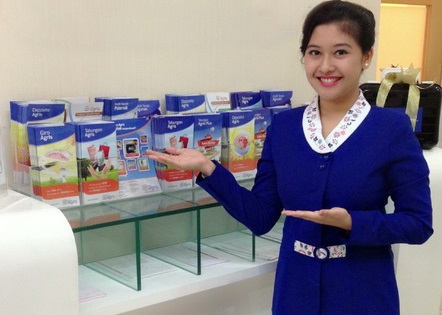Islamic Banking in Indonesia: Boosting Syariah Finance
Syariah banking or Islamic finance is a large untapped potential in Indonesia, a country where about 13 percent of the total global Muslim population live. With nearly 90 percent of the 250 million people in Indonesia adhering to Islam, the market share of syariah (sharia) finance is remarkably low. At USD $24 billion, Islamic banks in Indonesia only held 4.9 percent of the country’s total banking assets in 2013, hence making Indonesia’s Financial Services Authority (OJK) decide to launch a five-year roadmap in a move to boost syariah banking.
In contrast, in Malaysia - where only 61 percent of a total population of 61 million people are Muslim - Islamic banks hold a 20 percent market share. As Islamic finance has grown rapidly worldwide in recent years (global issuance of Islamic bonds, or sukuk, has expanded remarkably), becoming systematically important in Asia and the Middle East, Indonesia should participate in this type of financial services, particularly given its large and relatively unbanked Muslim population. Development of this type of financial services can become one of the measures to deepen Indonesia’s financial markets, hence making the country less vulnerable to global economic turmoil.
Islamic banking in Indonesia has had difficulty to grow due to weak government management (a lack of ministerial-level coordination in this sector), an uncertain legal environment and the lack of highly qualified human capital, innovation and creativity in the country.

Muliaman D Hadad, Head of OJK’s Board of Commissioners, said that the OJK will release its five-year roadmap for Islamic finance soon. By providing a conducive syariah banking industry, Hadad expects to attract many new investors to Indonesia, Southeast Asia’s largest economy. Currently, sukuk and limited participation mutual funds for Islamic assets are already available (issued by the private and state financial institutions) but their market shares are very small. The OJK encourages syariah banks in Indonesia, particularly syariah-compliant units of regional development banks, to consolidate, while it is also preparing to revitalize these regional development banks in an effort to create a huge syariah bank. Such a merger among existing Islamic banks would reduce operating costs and make it possible to offer more competitive rates. Moreover, it makes integration between Indonesia's Islamic bank(s) and the global financial system easier (for example by revising capital requirements in order to bring risk management at Indonesian Islamic banks in line with international standards). Other options include the strengthening of capital of both state-controlled and private syariah banks. This can be done by issuing sukuk in a move to strengthen banks’ capital.
Since five years Indonesia has been active on the global sukuk market and not unsuccessfully. Last year, investors showed their appetite for Indonesian sukuk offerings when on 2 September 2014, the Indonesian government raised USD $1.5 billion from ten-year dollar-denominated sukuk (coupon rate of 4.35 percent). Foreign investors submitted USD $10 billion worth of bids, six times the amount offered, displaying confidence in Islamic investment assets as well as Indonesia’s economic prospects. Over the past four years, Indonesia has sold a total of USD $5 billion worth of global sukuk.
Hadad said that a new USD $8 billion mega Islamic bank - created by merging syariah compliant units of state-controlled banks Bank Rakyat Indonesia (BRI), Bank Mandiri, and Bank Negara Indonesia (BNI) - would be able to quadruple Islamic banks’ market share in Indonesia to 20 percent by 2018. This merger may happen this year. These three banks together account for about 40 percent of Indonesia’s IDR 261 trillion (USD $20.1 billion) Islamic banking industry.
The OJK and Indonesia’s central bank (Bank Indonesia) are also eager to encourage the spin-off of syariah-compliant units of conventional banks into independent entities. Data from Bank Indonesia indicates that there are currently 11 full-fletched Islamic banks and 23 syariah-compliant units in Indonesia.
What is Syariah banking or Islamic Finance?
Syariah banking or Islamic finance are financial services that are in accordance with Islamic principles, for example the prohibition of interest (riba) payments and excessive uncertainty (gharar) or gambling (maysir). Instead, risks and rewards should be shared and the transaction should have real economic purpose without undue specification. Syariah banking involves banking, leasing, sukuk (Islamic bonds) and equity markets, investment funds, insurance and micro finance. However, the banking and sukuk assets account for about 95 percent of total Islamic finance assets.
According to data from the International Monetary Fund (IMF) global Islamic finance assets have grown at annual double digit rates from USD $200 billion in 2003 to USD $1.8 trillion in 2013. However, this type of industry is still mainly concentrated in the Middle East and Malaysia.
